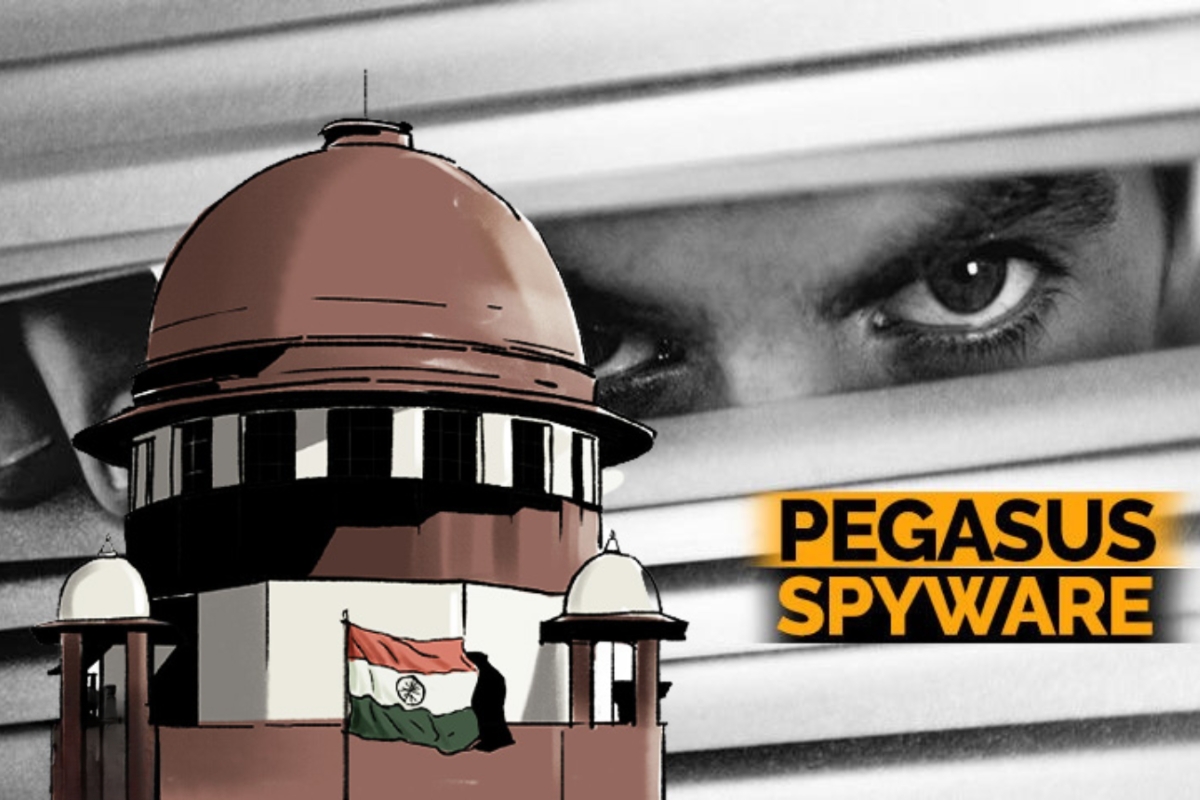In a landmark moment for privacy rights in India, the Supreme Court has reiterated a crucial point: while owning spyware like Pegasus isn’t inherently illegal, the way it’s used is what truly matters. The Supreme Court observation sheds light on the fine line between national security and individual privacy, ensuring that both are respected under the Constitution.
The Story Behind the Allegations
The controversy over Pegasus erupted in 2021 when a group of journalists, public figures, and activists filed petitions alleging that they were victims of surveillance by the Indian government using this powerful spyware. Reports emerged revealing that Pegasus, developed by the Israeli company NSO Group, had been used to target Indian citizens, including high-profile individuals like journalists and opposition politicians.

At the time, the Court responded swiftly, noting the gravity of the issue. It formed an expert committee, led by former judge Justice R.V. Raveendran, to investigate the allegations. This move came after the Indian government refused to cooperate, fueling further concerns. Despite these efforts, the controversy continued to simmer, with many demanding a more transparent and independent investigation into the matter.
Court’s Critical Observations on National Security and Privacy
During the most recent hearing, the Supreme Court raised pertinent questions about the government’s stance on national security and privacy. Solicitor General Tushar Mehta, representing the Union Government, sought an adjournment, citing a long delay in the proceedings. The Court, however, pressed for clarity, questioning what remained unresolved despite previous interventions and committee findings.
Senior Advocate Kapil Sibal, representing journalist Paranjoy Guha Thakurta, highlighted a recent ruling in the United States, where a court confirmed that Pegasus had been used to hack WhatsApp users in India. This revelation added weight to the claims of surveillance, making the demand for the disclosure of the expert committee’s findings even more pressing. Sibal argued that now that there was concrete evidence from WhatsApp, the victims should have access to the committee’s report.
Senior Advocate Shyam Divan also joined the discussion, calling for the complete, unredacted publication of the findings. He emphasised the principle of open justice, urging the Supreme Court to ensure transparency in the matter. However, Mehta raised concerns that revealing sensitive parts of the report could jeopardise national security. In response, the Supreme Court suggested that while some sections might remain confidential, individual-specific details could be shared with those directly affected.
A Delicate Balance Between National Security and Privacy Rights
One of the most striking statements came from Justice Surya Kant, who made it clear that while there was nothing wrong with possessing spyware like Pegasus, the real issue lies in its use. Justice Kant stressed that the government must ensure that its tools of surveillance do not violate individual privacy rights. National security is undeniably important, but it cannot come at the expense of constitutional rights. The Supreme Court firmly stated that civilian privacy must be protected under the Constitution, and this includes individuals who may not be terrorists or criminals.

This reaffirmation of privacy rights is significant in the context of growing concerns about the misuse of surveillance technologies around the world. The Court’s remarks strike a balance, acknowledging the need for state security while safeguarding personal freedoms. The case thus represents a critical juncture for India, where the judiciary is actively ensuring that the scales of justice are not tipped too far in favour of the state at the expense of individual rights.
Disclaimer: This article is based on current reports and legal proceedings. The information presented here is for informational purposes only and may be subject to change as the case develops further.
Also Read:
When Law and Love Unite: Supreme Court Applauds Piplantri Tree Tradition






